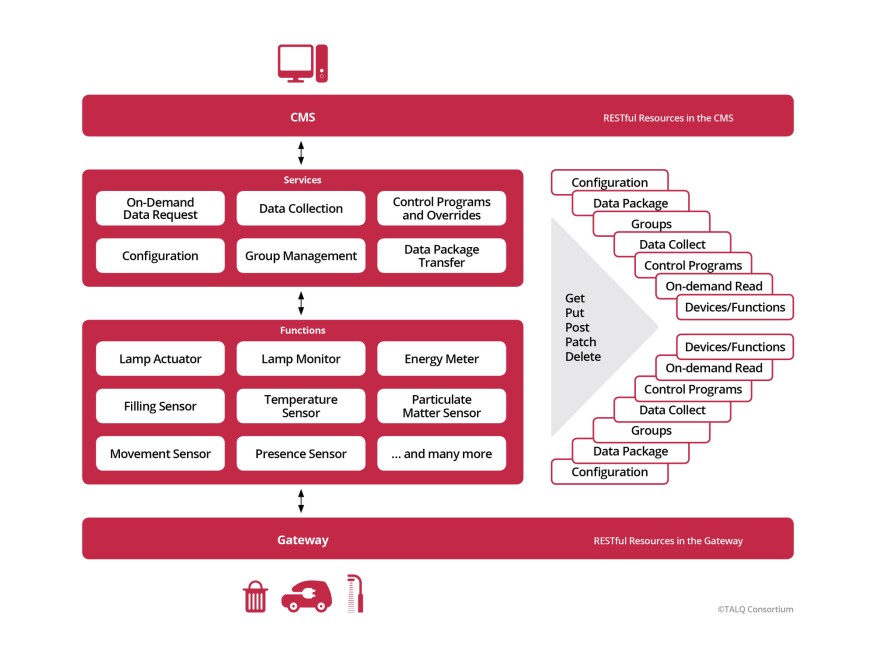The TALQ Consortium, 13 member companies from six countries, gathered in Spain for a plug fest, a developer's workshop demonstrating the fast-growing awareness and interest from the smart city industry in providing interoperability to cities. TALQ is a global consortium that aims to create a globally accepted open standard smart city protocol for central management software (CMS) to configure, control, command, and monitor heterogeneous smart city device networks.
Cities require interoperability between smart city products from various vendors to avoid being locked in by proprietary systems. They may also need several smart city vertical apps to be controlled within a single CMS.Thanks to the TALQ Version 2.0 smart city protocol, cities are now able to select devices and networks from multiple vendors and control them through a single central management software.

TALQ has also developed a certification program to guarantee interoperability for cities. TALQ Version 2.0 is based on globally accepted principles: a RESTful approach, based on interoperability between computer systems on the Internet. and associated JavaScript Object Notation (JSON) device and resource data models. This makes it easy to integrate into both CMS and outdoor device networks. Seven new implementations from TALQ Version 2.0 were tested against each other. Each of the tested CMS were able to control, command, and monitor the different smart city networks and gateways.
Even though several new features were added compared to TALQ version 1 - including device commissioning, multiple CMS and other smart city vertical applications - attendees stated that TALQ Version 2.0 is much simpler to integrate than version 1.
The TALQ team is now preparing the formal certification program expected to be ready by March 2019.










